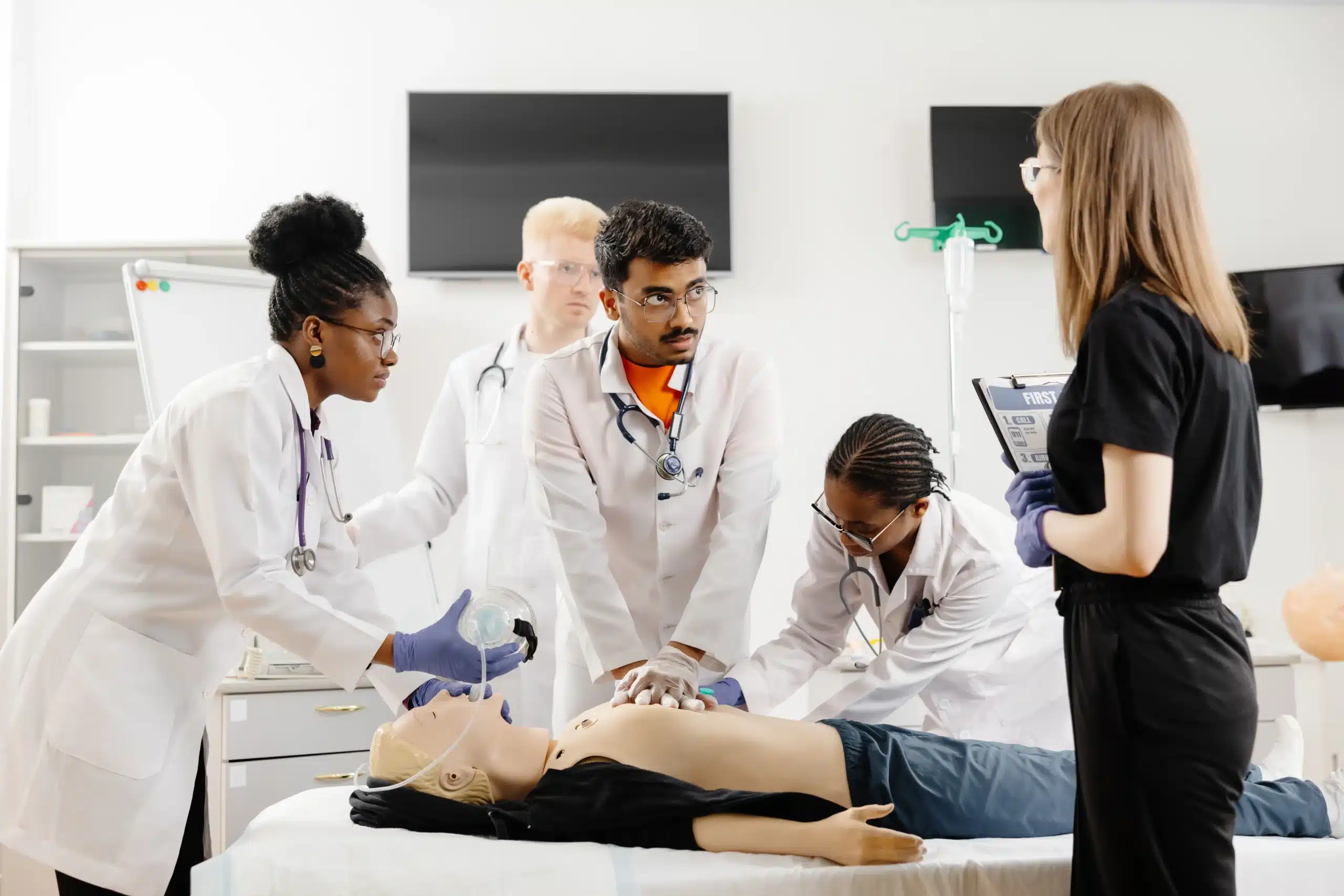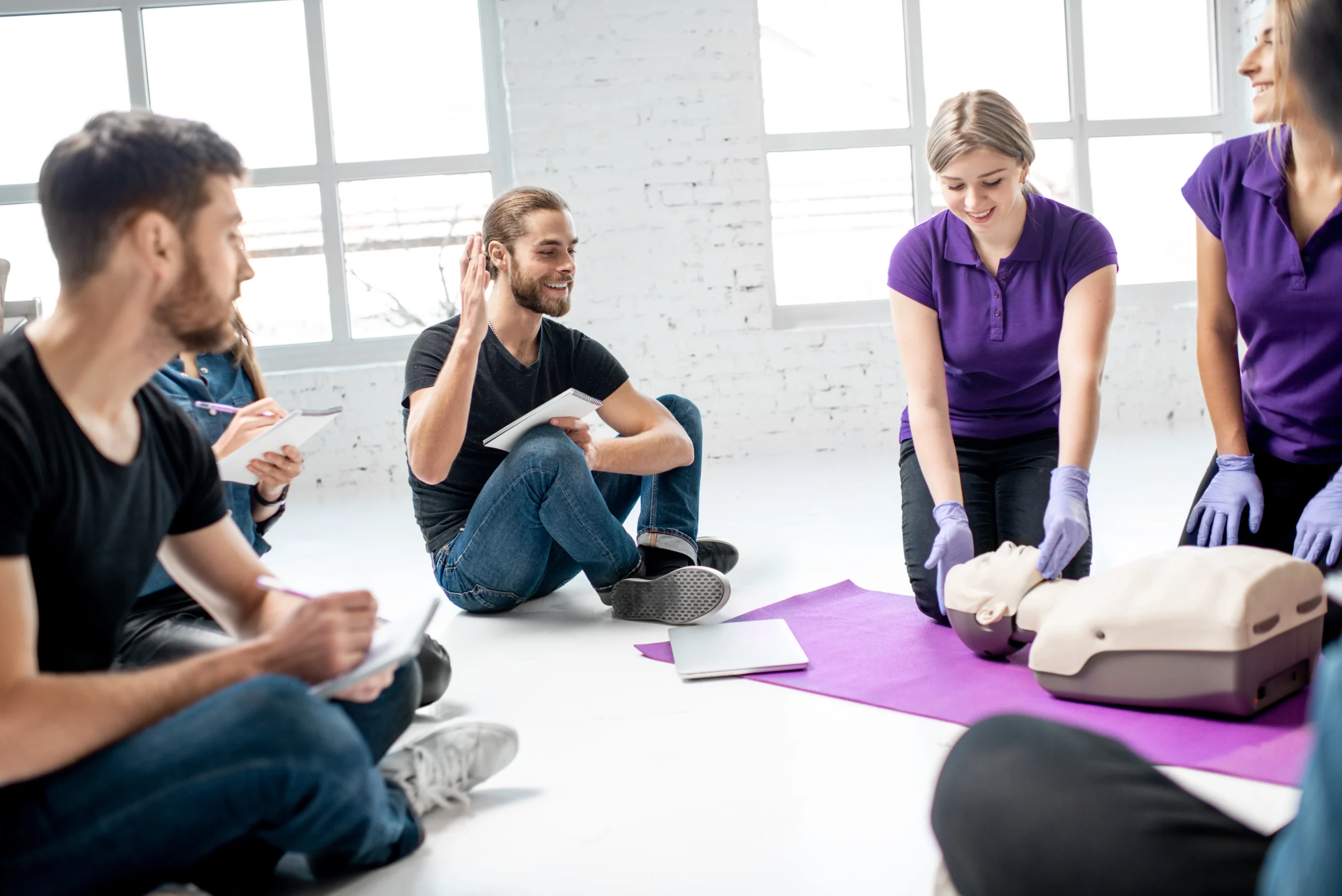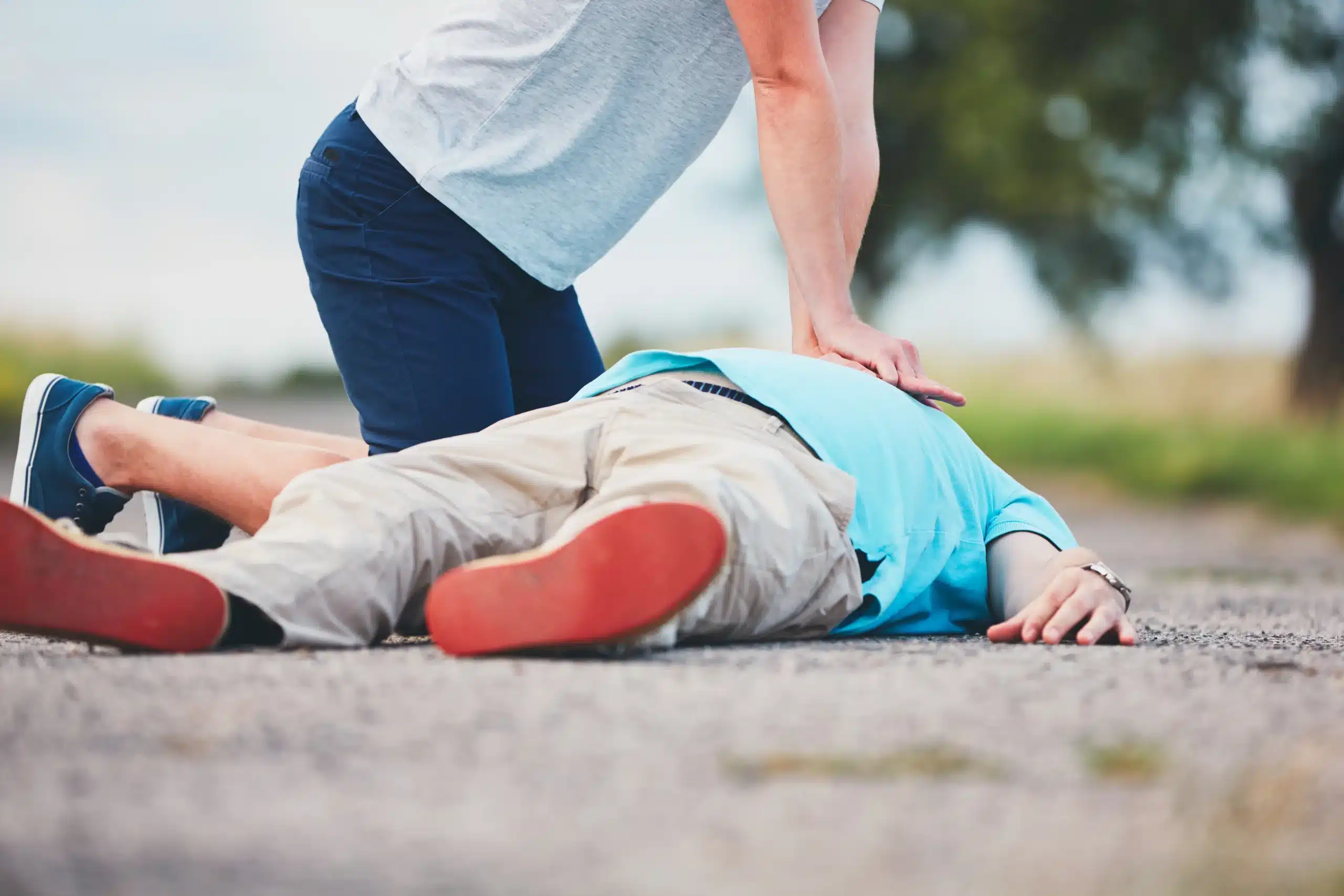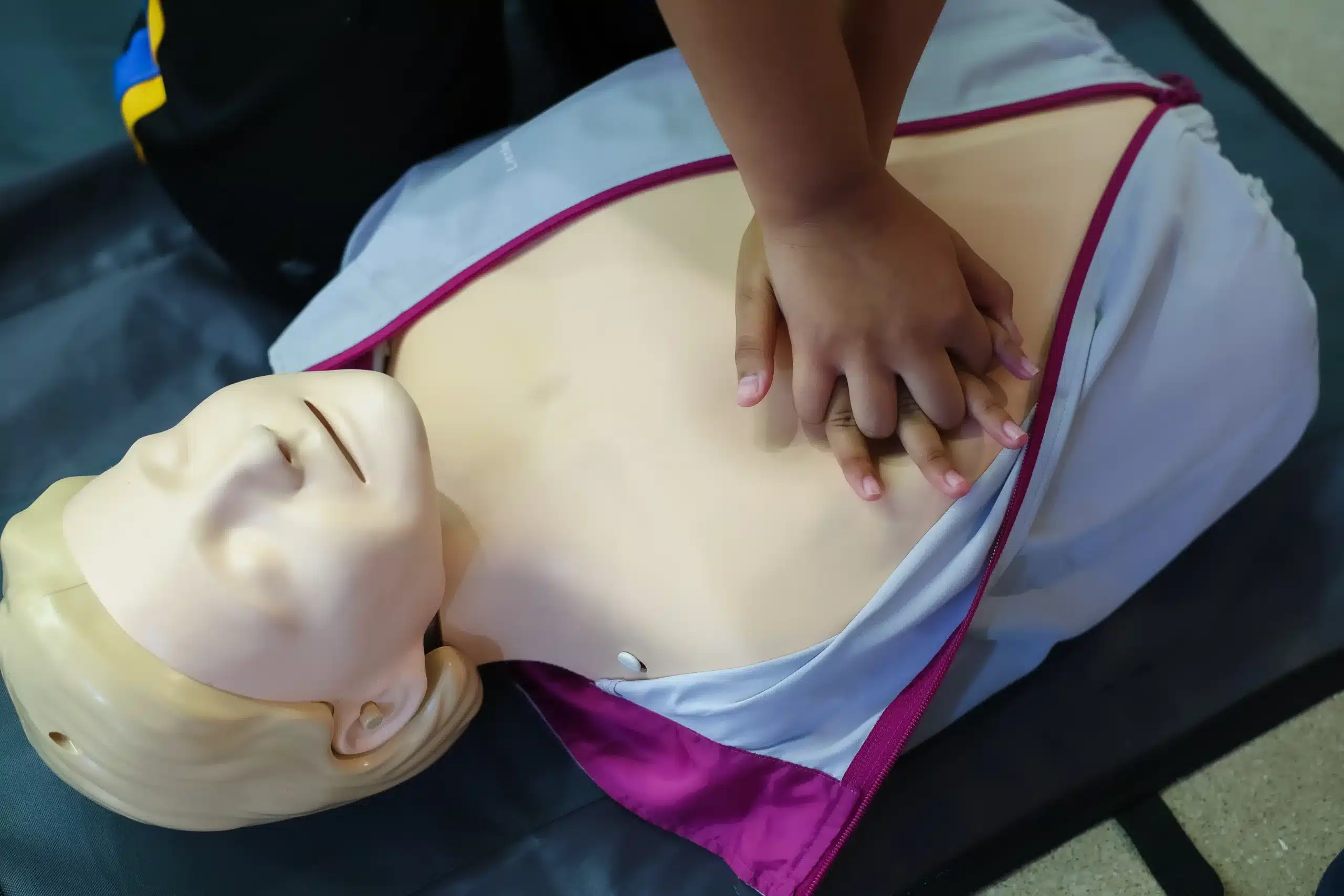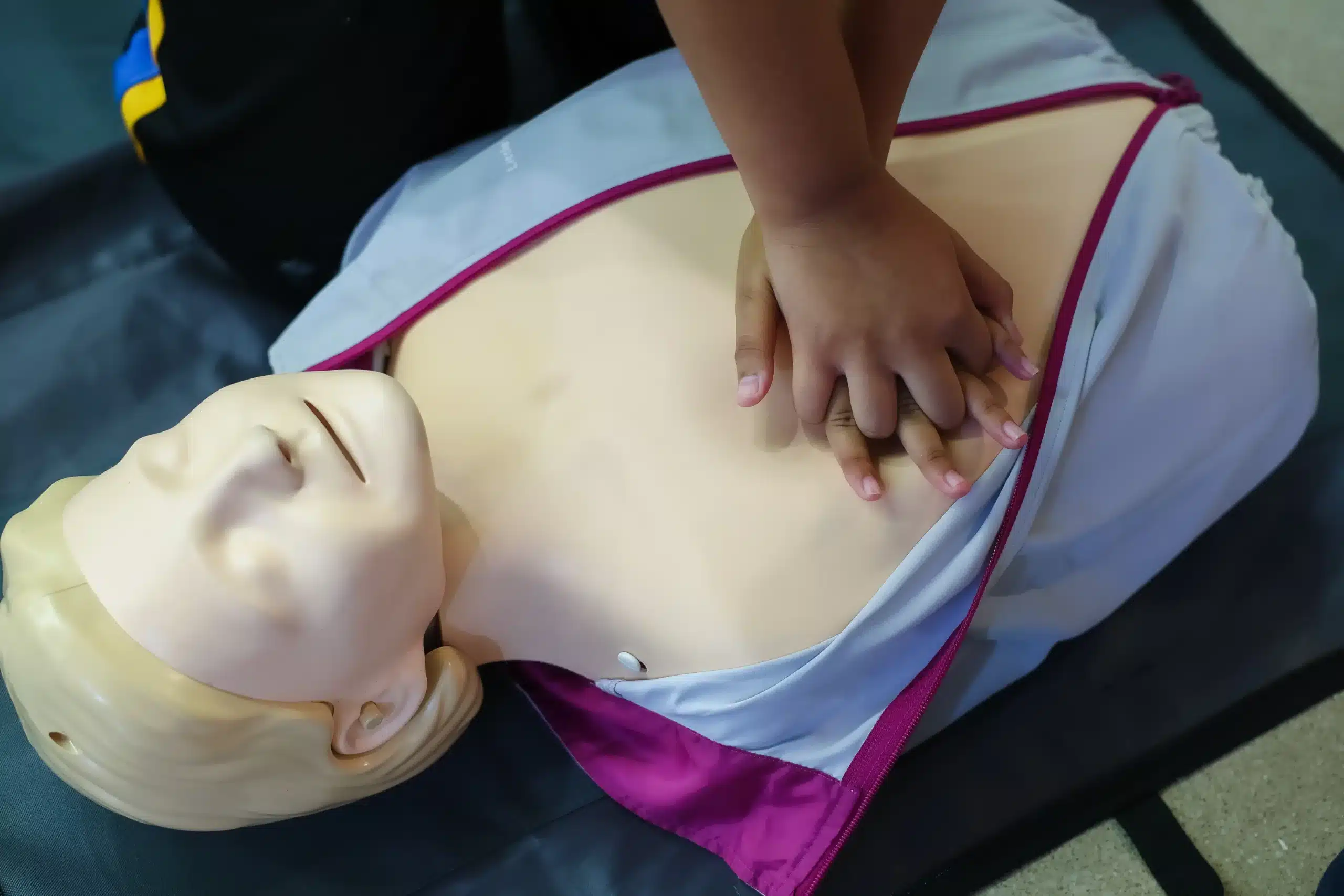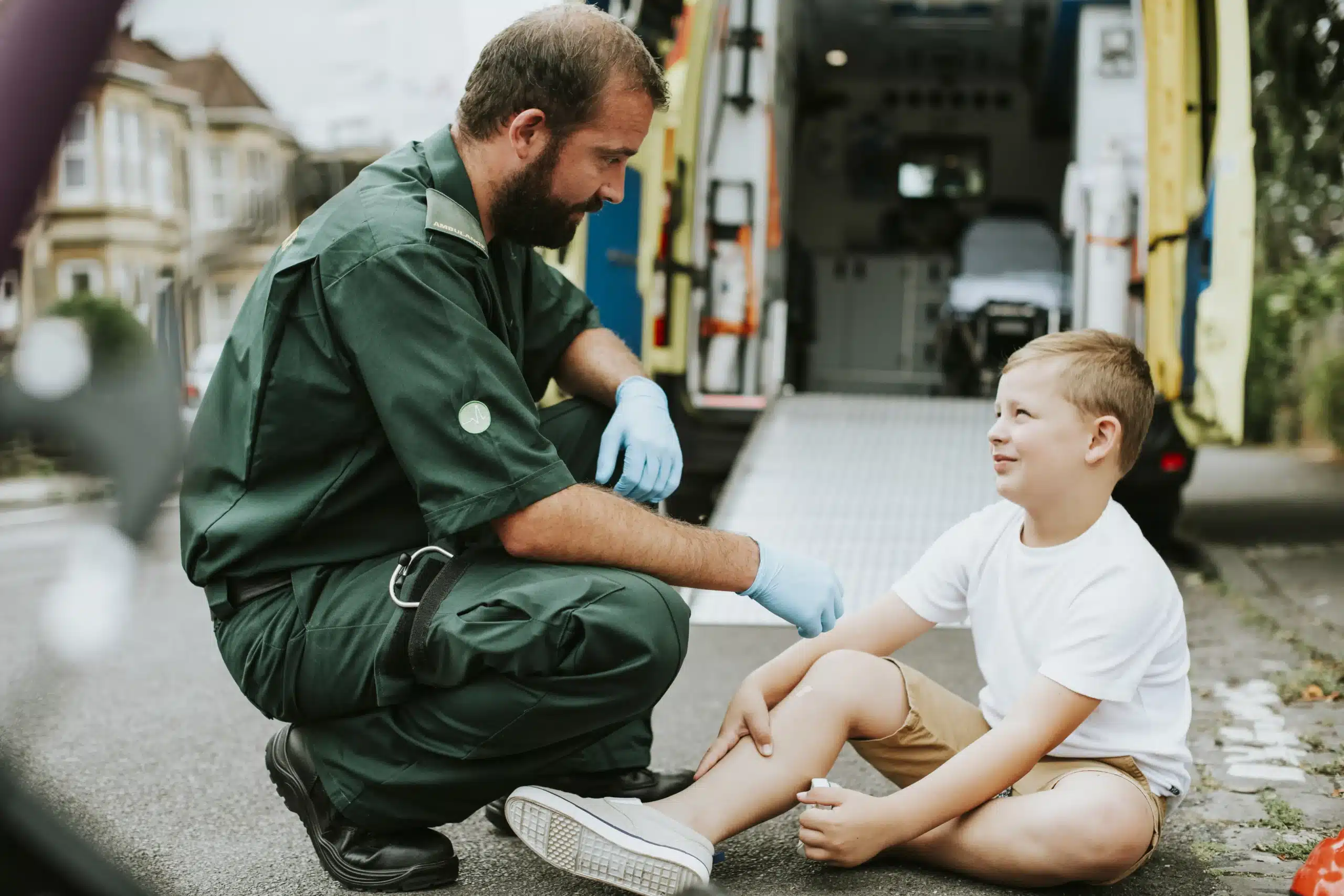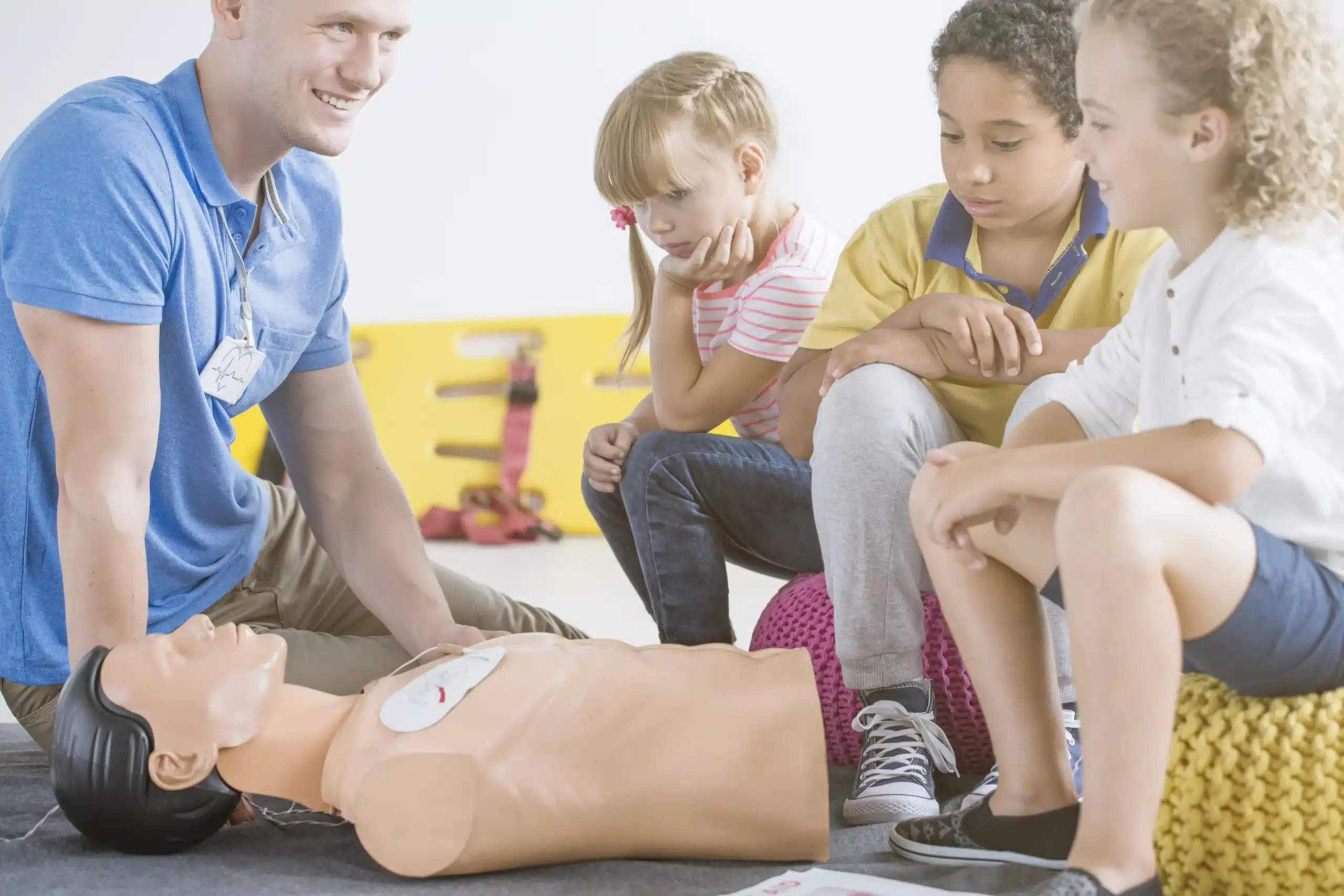Emergencies happen. Are you ready? Learning CPR can empower you to handle medical crises with confidence and potentially save a life. Whether you’re a concerned parent, a healthcare professional, or simply someone who wants to be prepared, CPR certification provides invaluable skills. This guide explores the importance of CPR, the various CPR courses in Petaluma, and how to find the right training for you. We’ll also discuss the benefits of certification, common myths, and resources available in the Petaluma area, including options for those in Rohnert Park and Novato.
Key Takeaways
- CPR skills empower you to make a difference: Learning CPR and first aid provides you with the tools to confidently handle emergencies and potentially save lives, whether at home, in the workplace, or within your community.
- Find the right CPR course for your needs: Explore various CPR certifications, such as BLS, ACLS, and PALS, to determine which best aligns with your personal or professional goals. Consider factors like course content, format (online or in-person), and cost.
- CPR certification offers valuable benefits: Becoming CPR certified enhances your resume, prepares you for unexpected situations, and strengthens your role as a community member. Take advantage of resources like group discounts and low price guarantees to make training more accessible.
What is CPR and Why Does it Matter?
CPR, or cardiopulmonary resuscitation, is a lifesaving technique used when someone’s breathing or heartbeat has stopped. This can happen due to a heart attack, near-drowning, or other medical emergencies. CPR combines chest compressions and rescue breaths to circulate oxygenated blood to the brain and other vital organs until professional medical help arrives. Learning CPR empowers you to take action in a crisis and potentially save a life. Adding first aid techniques to your skillset can also be crucial, allowing you to provide immediate care for injuries or illnesses.
What CPR Courses are Available?
Several CPR courses cater to different needs and skill levels. You can find courses for healthcare providers and the general public. Common certifications include Basic Life Support (BLS), Advanced Cardiovascular Life Support (ACLS), and Pediatric Advanced Life Support (PALS). These courses cover essential techniques for performing CPR on adults, children, and infants. Organizations like the American Heart Association (AHA) and the American Red Cross offer these certifications. Safety Training Seminars provides AHA-certified courses in BLS, ACLS, PALS, CPR, and First Aid. Choose a course that aligns with your requirements and learning style.
Common CPR Training Myths
Several myths surrounding CPR training often discourage people from learning this essential skill. One misconception is that only medical professionals can perform CPR. This isn’t true; anyone can learn CPR, and bystanders are often the first link in the chain of survival. Another myth is that you might cause serious harm by performing CPR. While some risks exist, the potential to save a life far outweighs them. Doing nothing is far more dangerous than attempting CPR. Concerns about performing CPR incorrectly or injuring the victim are also common. CPR courses provide thorough training and guidance to build your confidence and equip you with the skills to perform CPR effectively. Addressing these myths is crucial to encourage more people to learn CPR and be prepared to act in an emergency.
Top Petaluma CPR Training Providers
Finding the right CPR training can feel overwhelming, so we’ve compiled a list of reputable providers in Petaluma. Whether you’re a healthcare professional, a business owner, or just someone who wants to be prepared, one of these options might be the perfect fit.
Safety Training Seminars
Safety Training Seminars offers a range of American Heart Association (AHA)-certified courses, including BLS, ACLS, PALS, CPR, and First Aid. They also provide specialized training for California childcare providers and offer discounts for groups. Their commitment to affordable pricing makes them a competitive choice.
Petaluma Health Care District (HealthQuest CPR)
With nearly 50 years of experience, HealthQuest CPR is a well-established provider in Sonoma County. They offer a variety of CPR, First Aid, and AED training programs suitable for all ages and experience levels. HealthQuest CPR provides both in-person and online courses, with some even available in Spanish.
Alpha First Medical Academy
If you’re looking for affordable CPR training and certification in Sonoma County, Alpha First Medical Academy is worth considering. They offer comprehensive programs and encourage you to contact them directly to discuss discounts for larger groups.
CPR Test Center
CPR Test Center offers a streamlined approach to CPR certification. They provide online certification for CPR/AED/First Aid and BLS for Healthcare Providers at competitive prices.
Your CPR Course Options
Choosing the right CPR course depends on your background and goals. Whether you’re a healthcare professional, a concerned citizen, or somewhere in between, there’s a course in Petaluma that fits. Here’s a breakdown of your options:
Basic Life Support (BLS)
BLS certification is the foundation for anyone who might need to respond to a cardiac arrest or other life-threatening emergency. This course covers essential life-saving techniques, including high-quality CPR, recognizing someone needing CPR, and using an AED. BLS certification is a smart choice for healthcare providers, first responders, and anyone who wants to be prepared. The course emphasizes immediate action and effective techniques to improve survival rates.
Advanced Cardiovascular Life Support (ACLS)
ACLS certification goes a step further than BLS, covering advanced techniques for managing cardiovascular emergencies. Designed for healthcare professionals, ACLS training covers a broader range of situations, including stroke, acute coronary syndromes, and respiratory emergencies. It emphasizes team dynamics and effective communication during resuscitation. If you’re a doctor, nurse, paramedic, or other healthcare provider, ACLS certification is often required.
Pediatric Advanced Life Support (PALS)
Designed for healthcare providers working with children, the PALS course focuses on the unique needs of infants and children in emergencies. It covers pediatric-specific resuscitation techniques, including airway management and medication administration. PALS certification is essential for pediatricians, pediatric nurses, and other healthcare professionals who care for young patients.
First Aid and CPR Combo Courses
For a well-rounded approach to emergency preparedness, consider a combined First Aid and CPR course. These courses teach you how to respond to various medical emergencies, from cuts and burns to choking and allergic reactions. Adding First Aid training to your CPR skills gives you the confidence to handle different situations, both at home and in the workplace. These combo courses are a great option for anyone, regardless of professional background.
Hands-Only CPR and AED Demos
Even if you’re not ready for full certification, learning hands-only CPR and how to use an AED can still save a life. Many organizations offer free demonstrations and training in these techniques. These sessions are a quick and easy way to learn the basics and become more comfortable responding to an emergency. Check with local community centers or healthcare providers for upcoming events.
Costs, Discounts, and Class Schedules
CPR certification is an investment in your skills and the well-being of your community. Understanding the costs, available discounts, and how to find a class that fits your schedule is key to getting started.
Course Pricing
CPR course fees in Petaluma vary based on the type of certification you need. Basic CPR and First Aid combination courses typically start around $25, while more advanced certifications like BLS for Healthcare Providers are closer to $35. For the most up-to-date pricing, it’s always best to check directly with the training center. Safety Training Seminars, for instance, lists transparent pricing for all their courses online.
Group and Student Discounts
If you’re training with a group or are a student, you might be eligible for a discount. Many CPR training providers in Petaluma offer reduced rates for groups of ten or more. Contact the training center directly to discuss group discounts. Students should also inquire about special student pricing when registering.
Low Price Guarantees
When choosing a training center, look for one that offers a low price guarantee. This helps ensure you’re getting the best possible value. Safety Training Seminars offers a low price guarantee, promising to match or beat any lower price for a comparable course.
Find and Register for Classes
Finding a CPR class in Petaluma is straightforward. Safety Training Seminars offers a variety of courses, from basic CPR and First Aid to advanced certifications like BLS, ACLS, and PALS. They offer easy registration options, allowing you to sign up online or by phone.
Online vs. In-Person Training
While online CPR training offers convenience, in-person classes provide hands-on practice and direct interaction with an instructor. This can be especially helpful for building the muscle memory and confidence you need to perform CPR effectively during a real emergency. Consider your learning style and comfort level when deciding which format is right for you. If you value a more interactive learning experience, an in-person class might be the better fit.
Benefits of CPR Certification
Getting CPR certified isn’t just about learning a life-saving skill; it’s about gaining confidence, opening career doors, and becoming a more valuable member of your community. Let’s explore some key advantages of becoming certified.
Advance Your Career
CPR certification can be a significant asset to your resume. Many healthcare professions, education roles, and even some corporate jobs require or highly prefer candidates with current CPR training. Adding this certification demonstrates your commitment to safety and preparedness, making you a more competitive applicant. It can also create opportunities for promotions or specialized roles within your current field.
Prepare for Emergencies
Life is unpredictable. Emergencies can happen anytime, anywhere, and being equipped to handle them can make all the difference. CPR training provides you with the knowledge and skills to respond effectively in critical situations, giving you the confidence to act quickly and potentially save a life. This preparedness extends beyond the workplace and empowers you to assist family, friends, and even strangers in times of need.
Make a Difference in Your Community
CPR-certified individuals play a vital role in their communities. They become immediate responders who can provide crucial assistance while waiting for professional medical help to arrive. This willingness to step up and help strengthens community bonds and creates a safer environment for everyone.
Handle Medical Emergencies with Confidence
Knowing CPR can dramatically increase the chances of survival for someone experiencing sudden cardiac arrest. In fact, having someone nearby who is CPR-trained can double or even triple a victim’s odds of survival. This statistic alone underscores the powerful impact of CPR certification. It transforms bystanders into potential lifesavers, equipping them with the skills and confidence to handle medical emergencies effectively.
Choose the Right CPR Course
Finding the right CPR course comes down to understanding your needs and doing a little research. Whether you want this for personal growth or professional development, taking the time to choose wisely upfront will ensure you get the most from your training.
Assess Your Needs and Goals
First, think about why you want CPR certification. Do you need it for your job? Are you a parent wanting to be prepared for emergencies at home? Or are you simply interested in gaining a valuable life skill? Understanding your motivation will help you narrow the options. As Adams Safety Training points out, CPR and First Aid training becomes invaluable in moments of serious medical distress.
Compare Certification Requirements
Once you have a general idea of what you’re looking for, start comparing different CPR courses. Look at what each course covers and how long the certification is valid. Also, consider the cost. Prices can vary depending on the training provider and the type of course.
American Heart Association (AHA) Certification
The American Heart Association (AHA) offers a range of CPR and First Aid courses. AHA certification is often preferred by healthcare providers and other professionals. HealthQuest, a trusted provider in Sonoma County, has offered AHA training for nearly 50 years, demonstrating the long-standing value of this certification. Safety Training Seminars offers a variety of AHA-certified courses, including BLS, ACLS, and PALS.
Tips for Course Completion
No matter which course you choose, make sure you’re prepared to put in the work. Study the materials, practice the techniques, and ask questions. Remember, the CPR training test is the final step in your certification journey.
Industries That Benefit from CPR Training
CPR training isn’t just for healthcare professionals. Many industries benefit from having employees trained in CPR. From schools and daycare centers to construction sites and offices, having people on hand who can respond to medical emergencies can make all the difference. Offering CPR training as part of professional development or employee wellness programs can also improve employee morale and engagement. Consider checking out our group discounts for your workplace.
Ongoing Support and Resources
Finally, look for CPR training providers that offer ongoing support and resources. This might include refresher courses, online materials, or access to a community of certified professionals. Organizations like the Healthy Petaluma District offer support to businesses in the North Bay, emphasizing the importance of continued learning and access to resources after your initial training. Don’t forget to check out our low price guarantee as well.
Related Articles
- Why CPR is Important in Healthcare – Petaluma CPR Classes
- Debunking Common CPR Myths and Saving Lives
- CPR Certification Petaluma: A Complete Guide
- CPR Courses in Novato: Your Complete Guide – Petaluma CPR Classes
- Why CPR is Vital in Saving Lives
Frequently Asked Questions
What’s the difference between BLS, ACLS, and PALS?
BLS (Basic Life Support) teaches essential CPR techniques for everyone, while ACLS (Advanced Cardiovascular Life Support) and PALS (Pediatric Advanced Life Support) are more advanced courses for healthcare providers. ACLS focuses on complex adult cardiac emergencies, and PALS focuses on the specific needs of infants and children. Think of BLS as the foundation, and ACLS and PALS as specialized training built upon that base.
How do I choose the right CPR class for me?
Consider your current role and future goals. If you’re in healthcare, ACLS or PALS might be necessary. If you’re a teacher, parent, or simply want to be prepared, BLS is a great starting point. A combined CPR and First Aid course offers broader emergency preparedness. Think about where you’ll likely use these skills and choose accordingly.
Are online CPR courses as good as in-person classes?
Online courses offer flexibility, but in-person training provides hands-on practice and personalized feedback from an instructor. This direct interaction can be invaluable for building confidence and mastering the techniques. If you learn best by doing, an in-person class might be a better fit.
How much does CPR certification cost, and are discounts available?
Costs vary depending on the course and provider. Many providers offer discounts for groups, students, or businesses. Check with specific training centers for their pricing and discount options. It’s always a good idea to compare prices and look for low-price guarantees before committing to a course.
What if I’m nervous about performing CPR in a real emergency?
It’s normal to feel apprehensive, but CPR training equips you with the skills and knowledge to act effectively. Practice and hands-on training build confidence. Remember, doing something is always better than doing nothing. Your training will kick in when you need it most.
